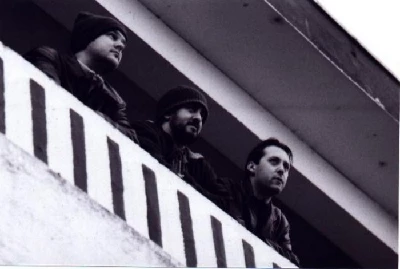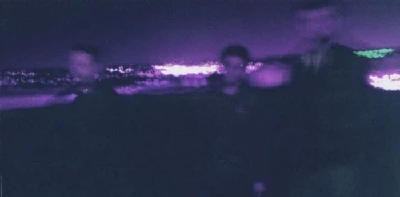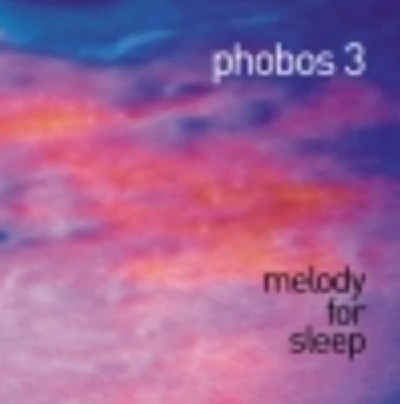published: 21 /
11 /
2003

Steve Jones and Richard Pushong tasted mainstream success in the mid-1990's as Elixir. When their studio was ransacked, they formed a new post-rock band, Phobos 3. They talk to Anthony Dhanendran about the problems and benefits of running two bands
Article
As Elixir, Martin Stovey, Steve Jones and Richard Pushong tasted mainstream success in the mid-1990's, with music that was both strikingly original and obviously influenced by contemporary sounds. That those influences ranged from Miles Davis and Kraftwerk to My Bloody Valentine and Spacemen 3 meant a heady and unusual mix that defied categorisation.
Their first 12”, 'March of Osiris' (released in 1996), was “a chopped up hip hop Beat in waltz time mixed with both easy and uneasy listening samples”. Unable to decipher its time signature, different clubs, and different DJs, played it at both 33 and 45rpm.
Their first album, 1997’s 'The Phobos Incident' (a title referring to a spacecraft thought to have been shot down from space), picked up a 10/10 review in DJ magazine, as well as high praise across the rest of the dance press.
The genesis of Phobos 3 came when the band’s studio was ransacked, and they were forced to go back to basics. Plugging in just the basic guitar and bass, with Stovey “on beats”, they created another space-rock world, one that was more natural than Elixir for its adherence to natural instruments, but at the same time sounding like something from another world.
Pennyblackmusic braved the wilds of west London one winter night to meet up with Steve and Richard.
PB : How do you separate the work you do for Elixir from the Phobos 3 stuff?
They’re so different to each other that we couldn’t release music done for one under the name of the other. We wanted to make the distinction between the two: the Phobos 3 stuff is all done with instruments – guitars, drums and bass, while the Elixir music uses samples as well. Phobos 3 is all organic. It would be a big problem to play the Phobos 3 stuff live, because it’s all multitracked.
PB : Is it a case of doing Phobos 3 in between doing stuff for Elixir?
It was all at the same time to begin with. Now we’re concentrating more on the Phobos 3 stuff. Phobos 3 tended to reflect more what we were listening to at the time. With Phobos 3 we’ve now got a good album’s worth of new material, and we’re looking for a label to release it.
PB : When was Melody For Sleep [the first Phobos 3 album] out?
That’s a story in itself. It was supposed to be out last year. This guy started a label and he said he’d release our stuff. But there was a mess-up at the distributors’ and it ended up not being distributed. A few copies got out. It got too much for him and the label fell apart, and so we said we would come round and pick up the remaining copies ourselves. So a few got distributed but the majority of them are still waiting to be picked up by someone. We had someone else who said they might put it out, but they found out that would mean getting it repackaged, and they weren’t too keen to do that.
PB : So it hasn’t really been released?
No. A few copies did get sent out, but most of them are just sitting in boxes.
PB : How has the press been, considering the good reputation Elixir had?
The first Elixir album got really good press, but since then it’s been slightly downhill. We’ve had a few reviews of Phobos 3, but it’s mainly been people on the web. Our label for Elixir is based in Belgium, so it’s difficult for them to know what’s going on over here.
PB : How about interest from abroad?
We’ve been picked up on in Europe. We’ve had e-mails from Italy, Scandinavia, France… everybody seems to be really getting into it. There’s a barrier in this country that we haven’t broken through. It’s expected that people from this country won’t be making that kind of music. It’s more accepted if you come from Scandinavia or America – they’ll be more receptive to it. If you’re in this country, unless you’ve got money behind you, you’re not going to make it like that.
PB : What are you listening to at the moment?
All sorts of things. The new Broadcast album, Mogwai, the Super Furry Animals, Spiritualized. As well as earlier stuff like My Bloody Valentine, and Spacemen 3.
PB : How do your studio arrangements work?
We’ve got our own studio. But in the definition of lo-fi, this is the lo-fi of the lo-fi. People come to our studio and say, “this stuff was all made in 1992”. It’s ten years old. People can’t believe that the music we’re making came out of the equipment we’ve got.
PB : How did the three of you get together?
The two of us had been playing in bands for a while. Martin was in a hip-hop group doing beats and vocals for them. We got together for a couple of tracks – then Martin had a meeting with a label man, playing him some of his stuff, and the guy says, “Have you got anything else?” So he played him the tracks we’d done, and the guy went crazy about them. We got quite a good advance – that’s when we put the studio together. We put an album together in 1995/96. The first album was a lot of fun. By the time of the second one we were being pushed towards an uptempo big-beat direction. The recording of that album went on for about a year, just chopping and changing things. We ended up leaving that label, but with no hard feelings – the contract just expired. We were picked up again within a couple of weeks, by a label in Belgium who had liked what we did on our first album. Elixir are still effectively with the same label, the Belgian one. Martin is also recording solo beats/hip-hop music, as Sykes.
PB : You’re all working full-time, so how much time do you spend as musicians?
Basically, all the rest of the time, when we’re not working. It depends, though, because you’ve got to be in the right mood to be able to record. You could spend a whole lot of time down there and not get anything done, or you could go straight in and come out with some new tracks. We find that with the second Phobos album we’re putting in more and more time as we get nearer to the end of it.
PB : So you would like to be able to make music full-time?
It would be nice; we’d really like to do it full-time. We’d like to be able to break even. If we were getting in a couple of hundred a month to pay the rent on the studio, we’d be happy. We’d like to replace some of the equipment, too. We’ve been doing this, part-time, for six or seven years, and there were things we wanted to do then, six or seven years ago, that we’re just starting to do now. Because you need the money and the time, to be able to do what you want with the music.
PB : Thank you
Picture Gallery:-


